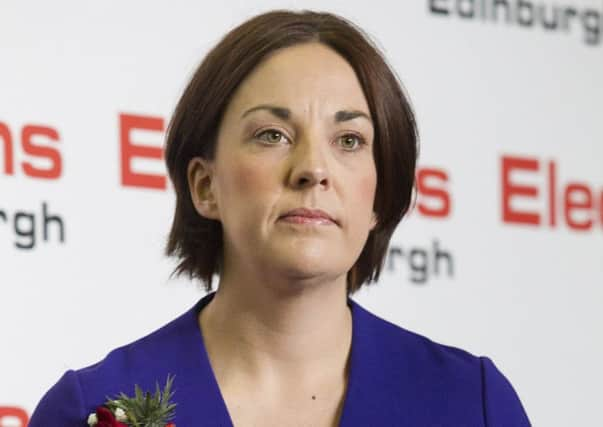Kezia Dugdale says no retreat from higher tax proposals


The divisions within Labour came to the fore yesterday as those on Blairite wing of the party said Dugdale’s economic policy played a key role in Labour’s humiliation at the hands of the Conservatives.
Despite the scale of Labour’s poor performance, Labour figures insisted that there were no moves to replace Dugdale as leader, arguing that after less than a year in the job she needs more time to make an impact.
Advertisement
Hide AdAdvertisement
Hide AdDugdale yesterday said Labour now had a “special responsibility” to lead progressive opposition to the SNP.
“This election has delivered a surprising result on two counts. The Conservatives are in second place, but the SNP have lost their majority and will have to work with other parties to get their programme through,” she said.
“That means Labour, and our MSPs, will have a special responsibility in this next Parliament. The SNP have a choice of whether to use progressive votes or Conservative votes to secure their plans for government.
“We will be a positive and effective opposition. We will hold the government to account and hold them responsible for the decisions they make. But we will also use our voice and influence to make sure that the Labour ideas that over half a million people voted for in this election are heard.
Labour strategists close to Dugdale claimed that her tax-raising proposals had proved popular in opinion polls looking at policy, but had not been associated by voters with the Labour brand.
They blamed the furore over a second independence referendum for Labour votes leaking to both the SNP and the Conservatives.
One MSP said: “We were caught in the middle of two competing nationalisms. It seems to be that if you wave the flag hard enough people will run towards it. But it doesn’t put bread on the tables.
“I think the policy agenda about ending cuts was right. The polling behind it was positive, but it was about people liking the message but not liking the messenger.”
Advertisement
Hide AdAdvertisement
Hide AdThose close to Dugdale acknowledged that her Fabian Review interview in which she said it was “not inconceivable” that she would back Scottish independence in the event of Brexit had been damaging.
Dugdale’s strategists said the Labour leader would argue against independence and a second referendum, but would try and look beyond the independence question through her policy of tackling cuts by raising taxes.
But for her Blairite critics, there was more to Labour’s poor result than constitutional arguments and the Conservatives’ success.
They blamed complacency when it came to Labour’s tactics for winning seats on the regional list, anxiety about tax hikes, Labour’s anti-Trident policy and concerns over Jeremy Corbyn.
“We thought they would hold on to second and we were obsessed with Labour voters who went Yes and what they forgot about was Labour No voters,” said one Labour critic. “But I don’t think being stronger on the Union single-handedly would have made a difference, because there was Corbyn, Trident and the tax stuff.”